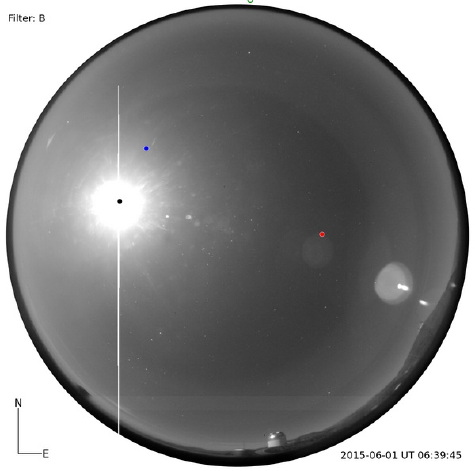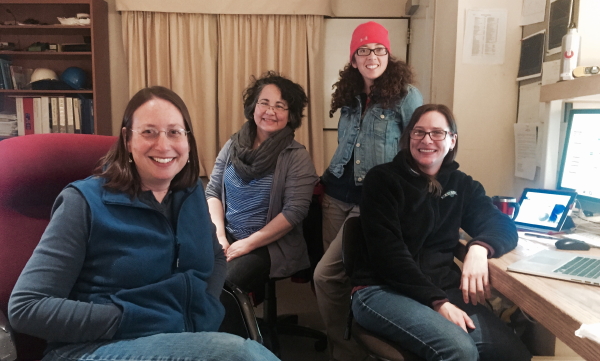My family knows that if they want to plan something for me months in advance of when the next semester’s telescope schedule is released, they should consult a Moon phase calendar and choose a time near New Moon. You, dear readers, undoubtedly know that astronomy and not astrology dictated my schedule — infrared astronomers are usually found on telescopes during “light time,” i.e., when the Moon is up more than half the night. Light time is generally considered less valuable, because you can make observations at any wavelength when the sky is dark, but you can’t do visible light imaging of very faint objects when the sky is bright. That’s why the time before infrared astronomy is known as the dark ages (just kidding).
I was just out walking under the nearly full Moon, which drowned the Milky Way, glinted off the reflective Magellan domes, and cast my shadow upon a lit ground. So, of course, I was contemplating whether the history of science would be different if we had no Moon or two moons. What if we hadn’t had the monthly circuit of the Moon to teach us orbital dynamics and the laws of gravity and the geometry of our Solar System? Or what if we had multiple Moons that kept the sky bright all month and prevented us from observing deep space? Why, then we really would have been in the light-time dark-ages until the advent of infrared astronomy! Perhaps even worse, what if Jupiter hadn’t had bright moons that Galileo could see orbiting? How much longer would it have taken to arrive at a theory of gravity and an accurate picture of our place in the Universe?
I confess I’m being an overly smug infrared astronomer here. Tomorrow the Moon will be near a target I want to observe, and though our infrared camera won’t care, the wavefront sensor works in the visible and we’ll have to see just how flooded with photons it is. That could really make me a lunatic. See how the Moon drowns the all sky camera:

On a separate topic, both Magellans and the duPont telescope are being run by female astronomers tonight! I will here put in a shameless plug for our other blog, Las Campanas Belles. If you don’t speak Spanish and/or don’t know about the ringing rocks, you at least have to check it out to find out why we call it that. Here are some of our observers:

With all this talk of the Moon and ladies, tonight’s song has to be “I wished on the Moon” by the Billie Holiday, the lady who sings the blues. Tonight, we’re not singing the blues because it’s a great night. Paradoxically perhaps, listening to Billie Holiday makes me happy.
If you really must listen to any other version (Jared), you can listen to this one, but only Billie Holiday will do for my wishes on the Moon. And I refuse to look for a parody of it.